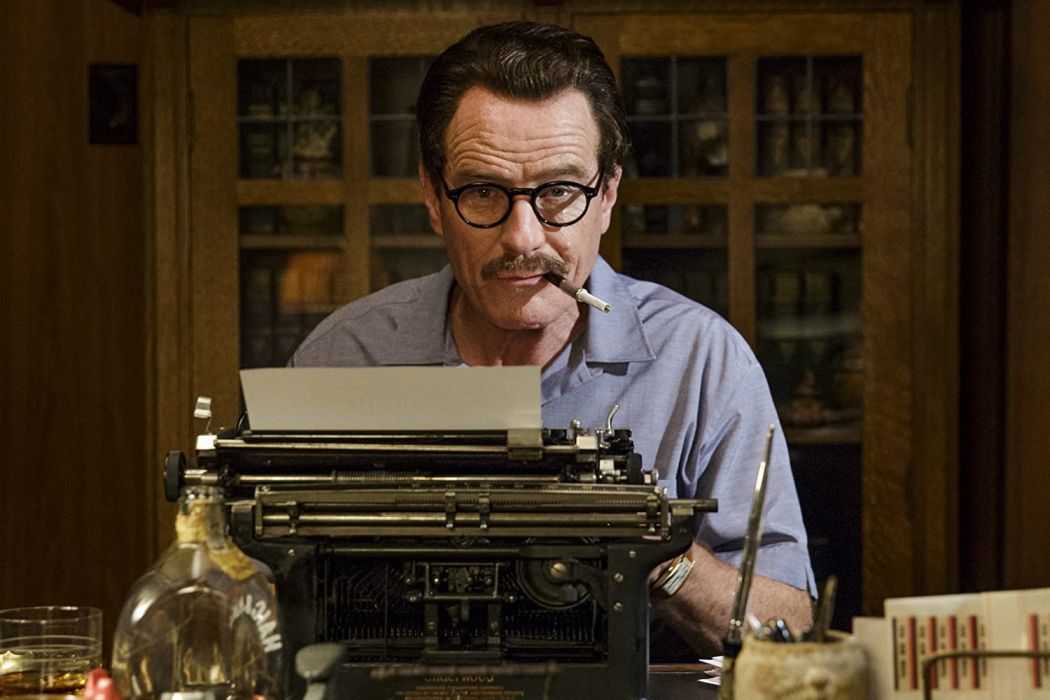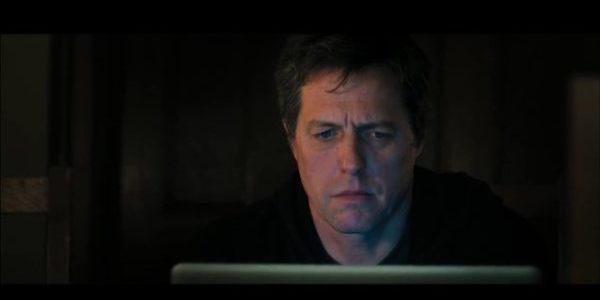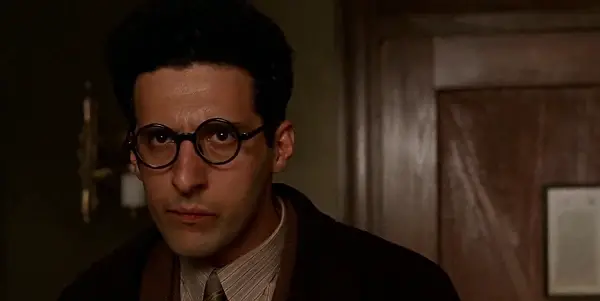The Pros, Cons & How-Tos Of Starting Out As A Screenwriter

Ryan Turpin is a journalist and screenwriter based in Helsinki,…
So, you want to be a screenwriter. And why not? In terms of income per word count, it’s arguably the most lucrative type of writing you could aspire to. If you also love storytelling and film – if you’re a creative at heart who is bursting with ideas – then writing for the big screen might seem like a no-brainer.
But hold up. There are two sides to every coin, and before you key in your first scene heading, you should probably hear about both. Following is a breakdown of the pros and cons you’re likely to encounter as a screenwriter, as well as a few tips on how to actually complete your first screenplay.
Pros
You might think “making money” should top this list, but it really doesn’t. Statistically speaking, you (just like all the rest of us) are very unlikely to ever make any money from writing screenplays. That doesn’t mean you can’t, or won’t, but saying that an income or career is a “pro” of screenwriting is like saying that becoming an Olympic athlete is a “pro” of getting a gym membership.
Could it happen? Yes. Should you count on it? Absolutely not. So what else is there? Actually, a lot.
You’ll Enjoy the Process
Screenwriting can be grueling and tedious, but it can also be wildly fun. A script is a world, and it’s yours to do what you want with. Characters, settings, and plot twists are at the whim of your imagination, and as the pages start to add up, it’s both empowering and exhilarating. At its best, screenwriting has a lot in common with other meditative activities – as you lose yourself in the work, the stressors and problems in your real life fade away.
You’ll Gain a Major Sense of Accomplishment
Writing even one screenplay is an achievement. How many people do you know personally who have done it, after all? It’s not just having an idea; it’s not just making up a story; it’s having the skill and the drive to actually turn it into 100 pages. Finishing a screenplay gives a sense of personal fulfillment that simply can’t be quantified, and the experience will always be with you.

You’ll Build Unique Skills
Even if you don’t break into the business; even if you hang up the typewriter ribbon after your first script; even if you don’t make it that far, learning the basics of how to read and write screenplays is a valuable asset that will stick with you and could open up other opportunities down the road. Whether your Oscar dreams get left behind or remain fully intact, it’s nice to have a skill set that also makes it possible for you to script an advertisement, music video, or other pieces of media. You’ll also get better at storytelling and writing in general, regardless of format.
In addition to the “hard skill” of writing, finishing a screenplay will help you level up in the “soft skills” department by schooling you in perseverance, patience, and humility. It’s possible to write a script quickly. More often, though, it takes months of dedication and plenty of grit. The beauty of it is that you can apply these lessons to so many other things in life.
You’ll [Possibly] Get to Watch Your Work Unfold on the Big Screen
Whether it’s paid or unpaid work; whether it’s a Hollywood blockbuster, an Amazon Prime series, or a short that you filmed yourself; whether it’s an adaptation, a rewrite, or totally original – it’s hard to compare the feeling that comes when you watch someone immortalize the words that you wrote.
And whether you’re lucky enough to see your own script on a theater big screen, or you’re just sharing that short film with your friends on YouTube, there’s nothing quite like being able to have that experience with them in real-time. For example, while writing a novel is its own huge accomplishment, you can’t exactly read it with people, sharing in the moment equally.
Simply put, if you manage to get any of your screenwriting produced – in any capacity – it’s basically guaranteed to be a unique and exhilarating experience.
Cons
Screenwriting also comes with some downsides. So does everything else, of course. Take running – great for your lungs, heart, and brain, but not so good for the knees. Learning the cons of something shouldn’t discourage you from it, just facilitate a healthy understanding of what you might be sacrificing in the process.
When it comes to screenwriting, here are some potential downsides to consider:
Your Confidence Will Take a Hit
The first thing you’ll probably realize about writing for the screen is that it’s difficult. Frankly, if it seems easy, chances are that your script isn’t very good. But it’s not only formatting (the nuances of which can take years to master) and structural aspects (ditto) that you’ll need to learn. You’ll also need to learn to take criticism.
If you want to write, print, and bind a script, then stick it on a shelf and just look at it from time to time, this might not apply. If you want to do anything else with your story (like enter it in a contest or use it to market yourself as a screenwriter), then the first step is to see what other people think about it. The problem is that there is no such thing as an objectively good or bad screenplay, and plenty of Oscar-nominated screenplays have received terrible feedback before ever being produced. The lesson is that it doesn’t matter what you write, someone will think it’s awful. And when they tell you as much, it might sting.
Meanwhile, if your ambition loses steam or changes course, and you never become a paid screenwriter, you might be very tempted to feel like a failure. In reality, it was the result of a complex matrix of decisions and circumstances – but it’s much easier for a simple word like “failure” to seep into the subconscious.

You Will Feel Incredibly Frustrated
Making up characters and plots sounds easy, and for some people, it is. But even for those gifted with a natural ability to tell stories, making one work as a movie script can be challenging. Communicating character development to the audience through subtext, embedding believable drama into every scene, using simple sentences to convey deep emotions – even experienced screenwriters wrestle with these problems on a constant basis.
Beyond the frustration involved in the process itself, trying to “make it” as a professional screenwriter is a minefield of frustrations and grievances. Whether you’re negotiating a page-one rewrite, endlessly pitching loglines, or just trying to learn what those things even mean, screenwriting is nothing if not rife with conflict for the screenwriter (both internal and external).
You Will See Movies Differently
Becoming “disillusioned” and “disenchanted” aren’t exactly the same, and as a screenwriter, both will happen to you in the context of film. By the word’s broadest definition, movies are illusions. They transport us to another place and time, teasing us with the idea that it’s reality. Becoming familiar with the basics of screenwriting is like seeing behind the wizard’s curtain. Once you know the typical function and placement of inciting events, set pieces, plot reversals, and other screenwriting staples, then movies will begin to deconstruct themselves in real-time as you watch.
On the one hand, it can be fun to have a little “insider awareness.” On the other, you may find that it’s nearly impossible for a story to grab and hold you with the same strength as you were previously accustomed to.
How to Complete Your First Screenplay
This has not been an exhaustive list of screenwriting’s pros and cons – not to mention that each may be interpreted uniquely by different writers. It should, at least, have given some insight into the fact that once you’ve written your first “FADE IN,” there’s probably no going back.
Assuming that you’ve now typed those words, or plan to, here are a few tips and tricks that will hopefully help you make it all the way to “THE END.”
Write Every Day
Entrepreneur Tim Ferris may not have written any screenplays, but he’s authored five books and thousands of blog posts, and has some sage advice on how to keep the content pouring out: every day, write “two crappy pages.” When it does come to movie scripts, they should be rewritten. They are expected to be rewritten. Hence, there’s very little point to letting perfectionism have any place in your first draft – and certainly not the first draft of your first screenplay.
Every day possible, sit down and continue the story you have. It doesn’t have to be great. It doesn’t even have to be good. Nothing you write at this point is permanent, and in fact, it might be that writing scenes you aren’t happy with is the very thing that will clue you in to what would be better.
If you can’t do it every day, don’t fret. As long as you’re trying, then you’ll probably still get 10 or more pages written every week. Obviously, the worst thing you can do in terms of finishing a screenplay is to not write anything at all.

Keep Lists of Ideas
It’s possible that you have one story you want to tell, and once it’s told, you’re not interested in writing more movies. But more than likely, the act of starting one screenplay will end up giving you ideas for a dozen others. This is a great thing – as long as you don’t quit the one you’re working on to start a new one. If you do, it’s all too easy to end up in a cycle of second-guessing.
There might come a time down the road when you’re a paid writer, and project-hopping is part of your day-to-day routine. For those just starting out, it can be counterproductive.
The same phenomenon can occur within a single script. You may have one plan for your characters, but find yourself distracted by daydreams about alternative plotlines. There’s not anything wrong with that unless it means none of them get written.
When you’re tempted to switch horses mid-stream, counter it by writing down your thoughts on a list. It’s a good idea to keep a list of ideas for your current screenplay, ideas for future screenplays, and any other categories of distracting thoughts.
Avoid Other Screenwriters
How-to books and websites are a great screenwriting resource. So are videos, seminars, and working screenwriters. The problem is that when you start paying attention to them, it can be hard to stop. YouTube and Reddit, in particular, are bursting with fantastic information for budding writers – and when you are stuck on a question or problem, then they are both excellent places to turn to.
Once you deviate from that specific aim, though, it’s a steep, slippery slope into time-wasting. The subheading of the Reddit screenwriting forum, for instance, reads “Where Writers Go to Blatantly Avoid Writing.” Spend much time there, and you’ll find yourself reading other screenplays, learning screenwriting trivia, and occasionally digressing into political arguments – but doing very little writing.
These sites are packed with so much material that it’s impossible to soak it all in, much less incorporate it into one project, making it a far better idea to just stay off of them. Once you’ve learned the most fundamental aspects of structure and formatting, you’ve got everything you need to knock out your first draft.
It’s All Subjective
The only wrong way to pursue a career in screenwriting is to not write any screenplays – and there’s no wrong way to write a screenplay. Demonstrating that exact point, however, is the fact that some writers would disagree.
The bottom line is that it’s all subjective, and that includes the pros, cons, and how-tos. No one can tell you whether or not the screenwriting journey is for you, and they certainly can’t walk it in your shoes. Hopefully, there was still some helpful perspective for you in this guide.
What do you think? What are the best and worst aspects of writing screenplays? What tips helped you get through your first ever draft?
Does content like this matter to you?
Become a Member and support film journalism. Unlock access to all of Film Inquiry`s great articles. Join a community of like-minded readers who are passionate about cinema - get access to our private members Network, give back to independent filmmakers, and more.











